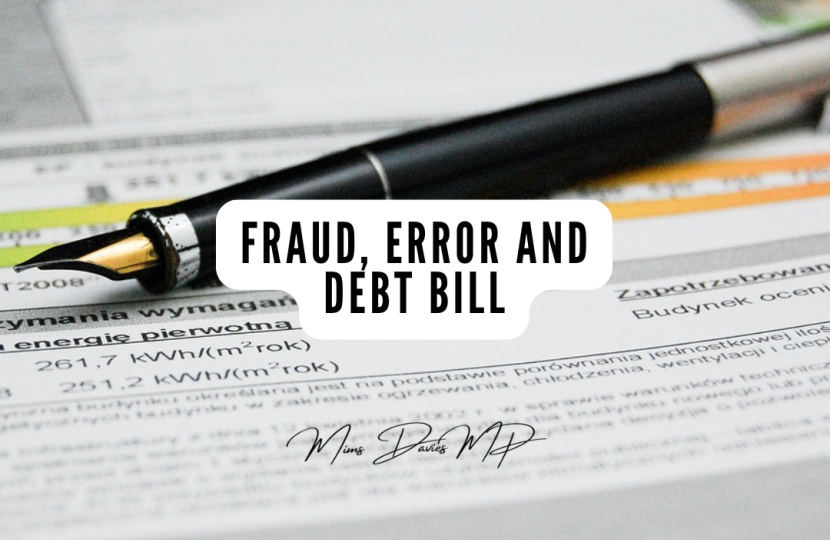
It is important to note that total benefit expenditure increased from £233.8 billion in 2022/23 to £266.2 billion in 2023/24, which amounts to a 13.9 per cent increase. Overpayments alone are calculated at £9.7 billion (3.7 per cent) in the last financial year.
Amid this backdrop, I entirely agree that more action is needed to tackle fraud and error in the Welfare System and diligently defend taxpayers’ money. Public support for our welfare system is contingent on there being confidence that taxpayers’ money goes to those who need it, rather than into the hands of criminals.
To that end, the Labour Government looked at how to better investigate suspected fraud through new search, debt recovery and data powers. I welcome that the Government clearly appreciates the proposals of the last Government by imitating much of the plan that the Department for Work and Pensions (DWP) had under the last Government’s ‘Fighting Fraud in the Welfare System’ plan and Digital Protection and Digital Information Bill.
A brand-new measure will see the time limit for civil claims against Covid fraud doubled from six to twelve years. This change in the ability to fight fraud committed during the pandemic will give the Covid Corruption Commissioner and the Public Sector Fraud Authority more time to investigate complex cases and apply their new powers retrospectively - including the ability to raid properties and retrieve money from Covid fraudsters’ bank accounts.
However, it is vital that DWP is always careful to process data lawfully, proportionately, and ethically, with meaningful human input and safeguards for the protection of individuals. It is also important that it adheres to the Data Protection Principles, including the Purpose Limitation principle, which means that the DWP must ensure that data collected in accordance with this power is used for the purpose for which it was collected and incidental matters.
In October 2024, the Secretary of State for Work & Pensions announced that the Fraud, Error and Debt Bill would be making its way through Parliament. The Bill aims to protect vulnerable individuals alongside clamping down on fraudulent practices within the welfare system.
I note some have concerns about privacy, which I absolutely share. As this Bill progresses, I will be pushing for the Government to make sure that proper safeguarding processes are in place to protect the most vulnerable. We must also make sure, whenever new powers are passed on, that there is proper scrutiny of how they are exercised so the impact can be monitored.
We do, however, have a duty to taxpayers to ensure that taxpayers' money is spent efficiently and that the welfare programmes we invest in truly improve livelihoods. If the Government commits further to safeguarding and stays true to the principle of reducing waste, we have an opportunity to make the welfare system work best for those who need it most. It should also be said we need to ensure there is sufficient money to fund vital public services which is why we need to cut out fraud.
I understand that the Government has said that DWP will not have access to people’s bank accounts and will not share their personal information with third parties. I will be sure to closely scrutinise the contents of the Bill in the best interest of my constituents.




